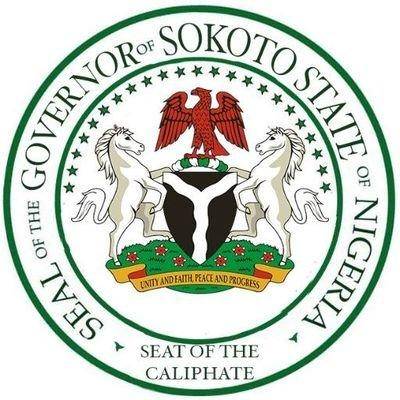
About 600,000 hitherto out-of-school children in Sokoto State are now pursuing their education as a result of the state government's socio-economic intervention to encourage parents to support their children and wards to enrol in schools.
Prior to this development, about 900,000 children of school-going ages in the state were out of school.
But when the state government started paying stipends to mothers whose children were hawking, many of such children are now in school.
Gov. Aminu Waziri Tambuwal of Sokoto State stated this when he received the Special Adviser to the President on Social Intervention, Hajiya Maryam Uwaisu who paid him a courtesy visit at Government House, Sokoto on Monday.
Gov. Tambuwal also said under his administration, the state government is committing a lot of resources to the provision of infrastructure, learning materials, employment of more teachers and also training and retraining of teachers.
He added that the state government is presently constructing three Girls Science
Academy in the state that would be ICT-driven and designed to be a receptacle for graduands of Junior Secondary Schools being built in the 23 local government areas of the state.
Both the Academies and Junior Secondary Schools, the latter structured to contain about 500 girls and the former to have 3000, the governor said, is intended to prepare the girls to become science related students who will deepen their studies at the Nana Asma'u University of Health Sciences, being planned by the Sultan Foundation and the Sokoto State University Teaching Hospital (SOSUTH) under construction; and later become medical personnel and high-grade physicians.
Commending President Muhammad Buhari for initiating the At Risk Children (ARC) project in the country, Gov. Tambuwal said the best thing any state or local government should do is to immediately embrace the initiative because the project is an investment in the future of the children that must be taken seriously.
According to Tambuwal, taking on such an initiative is the responsibility of all leaders who must embrace these children- the less-privileged, vulnerable, and orphans; and turn them into better children for their own interest and the collective interest of the society.
He said there is no federal child, as every child belongs to a particular state, thus he or she is the responsibility of the states and local government to look after, a reason why state governments must support the ARC Initiative by collaborating with the Federal government.
Tambuwal also explained that the state government, through its Zakkat and Waqf Commission, (SOZECOM), have built a strong team of social welfare providers, who are working conscientiously to address the challenges of, not only itinerant beggars (almajirai), but orphans, the vulnarable as well as the elderly.
In her address, the Special Adviser to President on Social Intervention, Hajiya Maryam Uwais, said her team was in the state to brief the governor on the ARC project meant for children below the age of 18 .
She said the project is trying to leverage on existing initiatives and facilities in states, share learning and expertise and, where possible, enhance what is available so as to collaboratively address the many challenges that children at risk face across the country.
Hajiya Uwais explained that the team started with the north considering the large number of almajirai that exist in the region. She, however, noted that the focus of the project is not limited to the almajiri alone.
She applauded the state government for already having a remediation education process focused on the integration of Western and Islamic knowledge in some schools. She said the ARC Initiative will key into this model and support it.
Muhammad Bello
Special Adviser Media and Publicity to the Governor,
March 8, 2021,
Sokoto.





